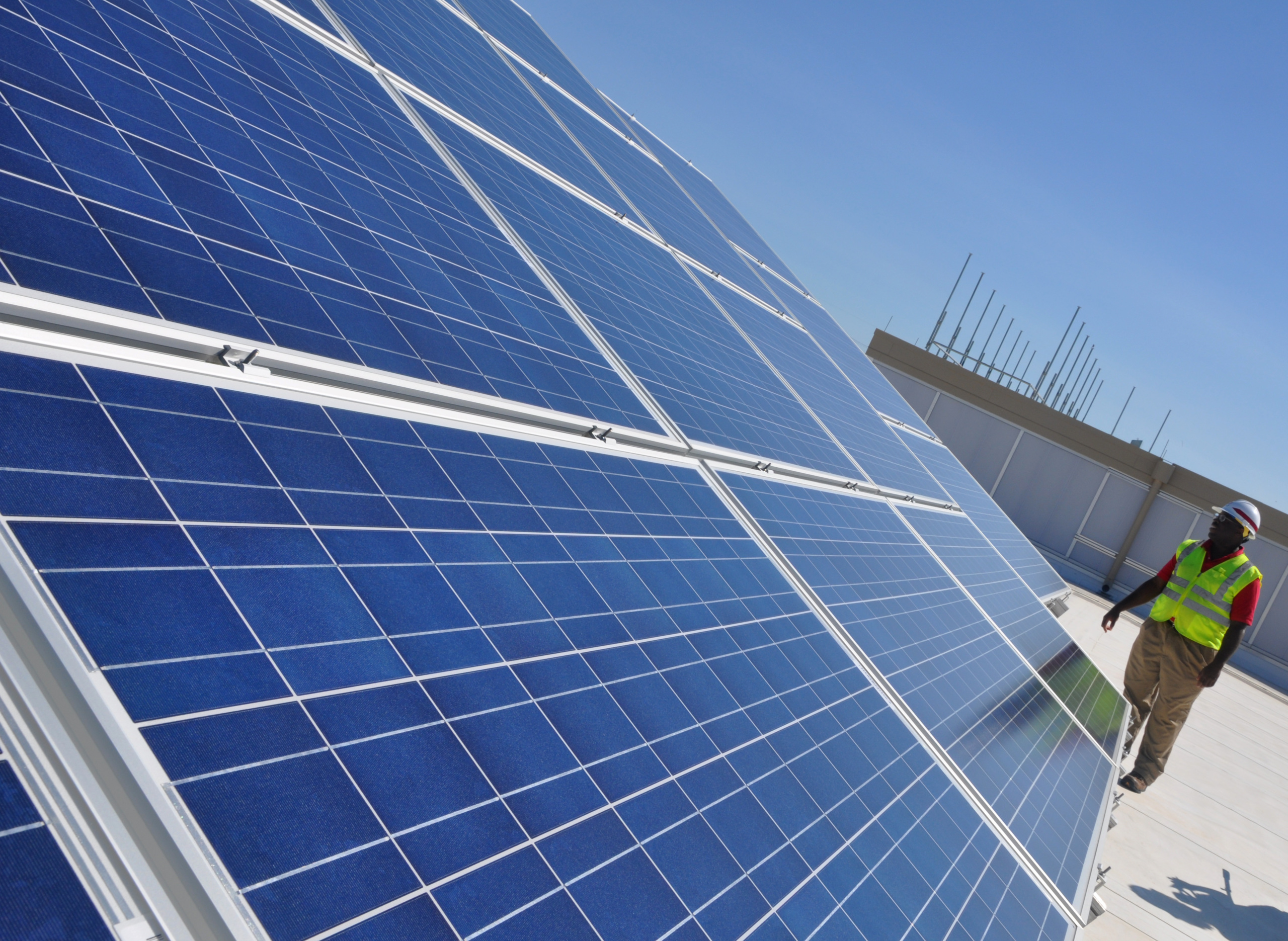Climate Victories in 2021
Between another historic wildfire season and unprecedented weather patterns including the summer heatwave, this year climate change felt inescapable and urgent in Oregon. But this year was also one filled with momentous state and federal climate action.
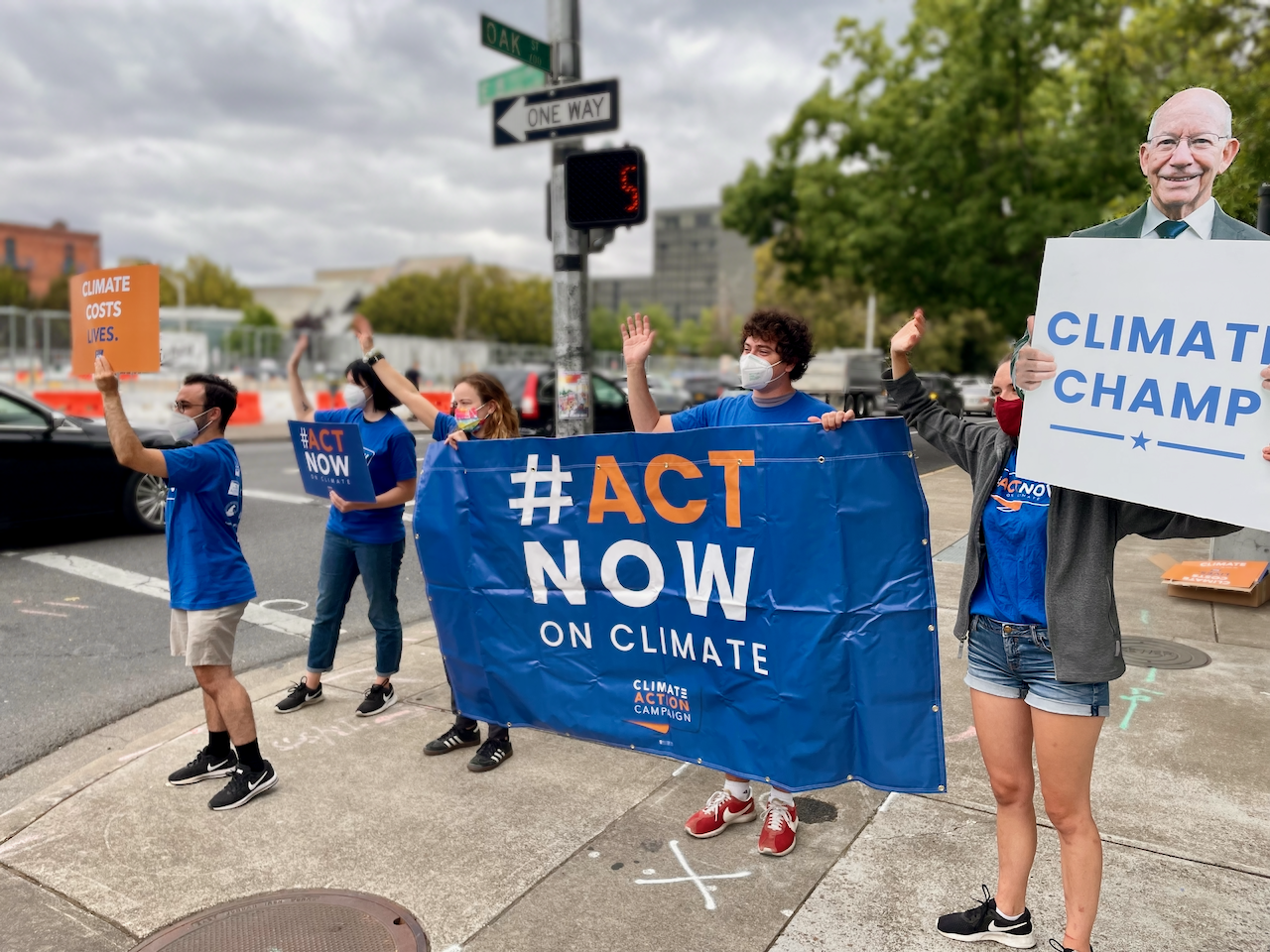
Between another historic wildfire season and unprecedented weather patterns including the summer heatwave, this year climate change felt inescapable and urgent in Oregon. But this year was also one filled with momentous state and federal climate action.
Here are some of the largest grassroots-powered climate victories in Oregon and the U.S. in 2021.
Oregon Climate Victories in 2021:
Oregon became the 8th state to commit to 100% clean electricity, tied for the fastest timeline in the country.
Over the summer, Gov. Brown signed a bill committing electricity providers to deliver 100% clean power to Oregon customers by 2040. By setting 2040 as the deadline to reach its commitment, Oregon ties New York for the fastest timeline in the nation. The legislation includes requirements for 80 percent emissions reductions for power sold in-state by 2030, 90 percent by 2035 and, ultimately, 100 percent by 2040. Committing to 100% clean electricity is the first step on the road to the fossil free future required to mitigate the worst impacts of climate change.
Oregon made the transition to electric vehicles easier for consumers.
The Oregon Legislature made it more affordable and convenient for Oregonians to purchase electric vehicles by extending EV tax rebates of up to $7,500. Transportation is Oregon’s number one source of global warming pollution, with greenhouse emissions from cars, trucks, buses and other vehicles surpassing every other source. Getting more Oregonians into electric vehicles is critical for tackling climate change and ensuring that Oregonians have clean air to breathe.
Oregon became the first state to follow in California’s lead and pass the Clean Trucks Rule.
Under the Advanced Clean Trucks Rule, all medium and heavy-duty truck manufacturers in the state will be required to sell zero-emission vehicles at an increasing percentage of total sales, starting in 2025. In addition, a companion rule was passed that strengthens smog emission standards for all new non-electric manufactured trucks. These two major steps forward will cut greenhouse gas emissions and pollution from tail-pipes.
The Jordan Cove pipeline’s permits were formally canceled — putting the project to bed.
Pembina, the company proposing the fracked gas pipeline across the state of Oregon which would have ended at a marine terminal in Coos Bay, has officially filed to cancel their permits. After years of advocacy from landowners, tribes, environmentalists and concerned Oregonians, this news is a massive victory in the fight against fossil fuels.
The City of Eugene took steps towards transitioning away from methane gas and towards electrification.
The Eugene City Council is moving forward with two proposals which would ban gas hook ups in new buildings beginning January 1st, 2023, and equitably transition the city to all electric buildings by 2045. Decarbonizing the city’s buildings and homes would move Eugene towards their climate recovery goals including cutting fossil fuel use 50% by 2030.
The Oregon Legislature passed two bills to increase energy efficiency.
The Oregon Legislature strengthened Oregon’s appliance efficiency standards, and though not the most sexy policy, embracing efficient appliances is an incredibly simple and cost-effective way for Oregon to both reduce greenhouse gas emissions and lower the cost of utilities. In addition, the Legislature passed the “Healthy Homes” bill, which will make investments in energy efficiency upgrades in low-income and environmental justice communities and help Oregonians use less energy, reduce their energy bills and be safer and healthier in their own homes.
The Oregon Environmental Quality Commision (EQC) passed the Climate Protection Program, mandating emission reductions.
In the dwindling days of 2021, Oregon took a huge step towards a cleaner, more sustainable and just future. The Climate Protection Program requires all fossil fuel and oil companies to reduce their climate pollution 50% by 2035, and 90% by 2050. The program also reinvests in clean energy projects in communities most harmed by climate pollution.
U.S. Climate Victories in 2021:
The U.S. rejoined the Paris Agreement.
As the largest source of cumulative emissions in recent centuries, the United States has an obligation to lead the world in climate emission reductions. By rejoining the Paris Agreement, we join the ranks of countries across the globe that are asking their leaders to prioritize actions to mitigate climate change.
The Bipartisan Infrastructure Bill passed by Congress in the fall included investments in climate resilience and mitigation.
With investments in passenger rail and public transportation, electric vehicle charging infrastructure and efforts to modernize and weatherize our electric grid system- the Bipartisan Infrastructure Bill is a win for the climate. Over the next 5 years, Oregon is slated to receive $747 million for public transportation improvements, $52 million for EV charging station expansion, and $39 million for wildfire mitigation.
The Keystone XL pipeline expansion project was officially abandoned after over a decade of protest and regulatory back-and-forth.
The fight to stop the expansion of the Keystone XL pipeline was not a straightforward one, and spanned three presidential administrations. Originally proposed by the Canadian company TC Energy in 2008, the pipeline was set to transport tar sands oil, one of the most harmful and dirty fossil fuels, from the Canadian Boreal forest into the U.S. Vetoed by the Obama administration due to its climate impacts, the project was brought back to life under the Trump administration. On President Biden’s first day in office, he permanently revoked the project’s permits, officially ending the decade-long saga.
President Biden signed an executive order promising to protect 30% of U.S. lands, waterways and oceans by 2030.
In order to mitigate the climate crisis and protect species from extinction, it is critical that we protect at least 30% of the Earth’s surface from development. By signing this executive order, the federal government recognizes the importance of slowing the destruction of our natural lands, mitigating pollution, and fighting the climate crisis.
Federal protections to wildlife and wild places lost under the Trump administration were restored.
Granting land federal protections defends it from industrial degradation, and moves the U.S. towards the goal of 30% protected by 2030. Under the Trump administration, federal protections to 3 national monuments— Grand Staircase-Escalante, Bears Ears and Northeast Canyons and Seamounts (the first protected marine national monument in the Atlantic)— were rolled back. This opened the culturally significant and ecologically important Utah areas to mining and extraction, and the delicate and vital biodiverse marine area to commercial fishing. Making true to his promises to mitigate the climate crisis and improve the ways we use land, President Biden restored the three national monuments upon entering office.
The EPA released a new rule tightening the emission standards for new vehicles.
In the final days of 2021, the Environmental Protection Agency (EPA) passed a new rule that will tighten emissions standards for all new vehicles through 2026. These new standards are the most ambitious to date, and will help cut emissions from transportation- the U.S.’s largest source of warming greenhouse gasses.
In 2021, we saw climate action at the local, state and federal level. These victories were made possible by the hard work and dedication of many people making their voices heard. We hope you feel inspired reading these wins, and that it motivates you to keep fighting for a clean, green future in 2022!
Topics
Authors
Jessie Kochaver
Find Out More
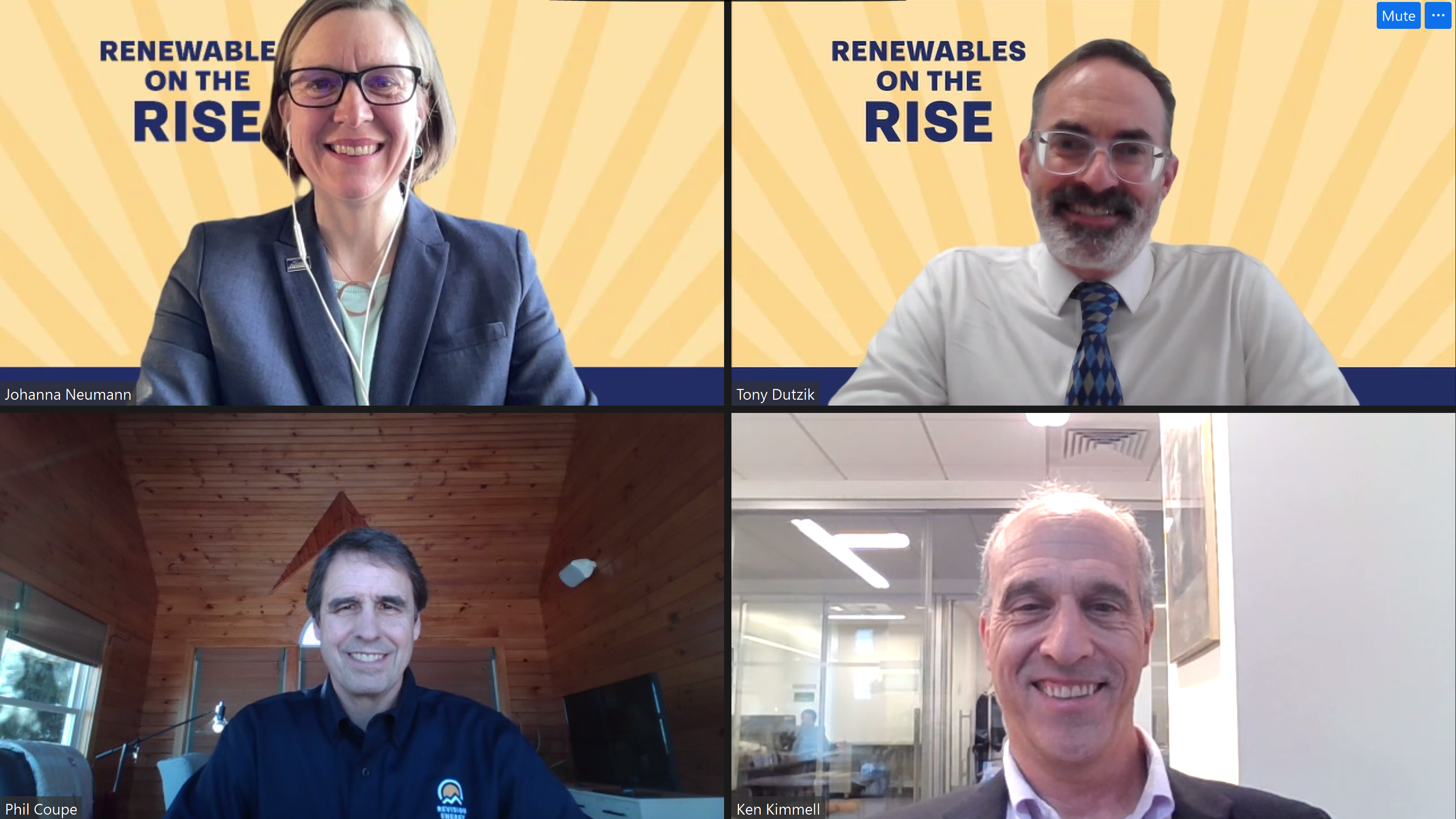
Key takeaways from Renewables on the Rise: Success Stories
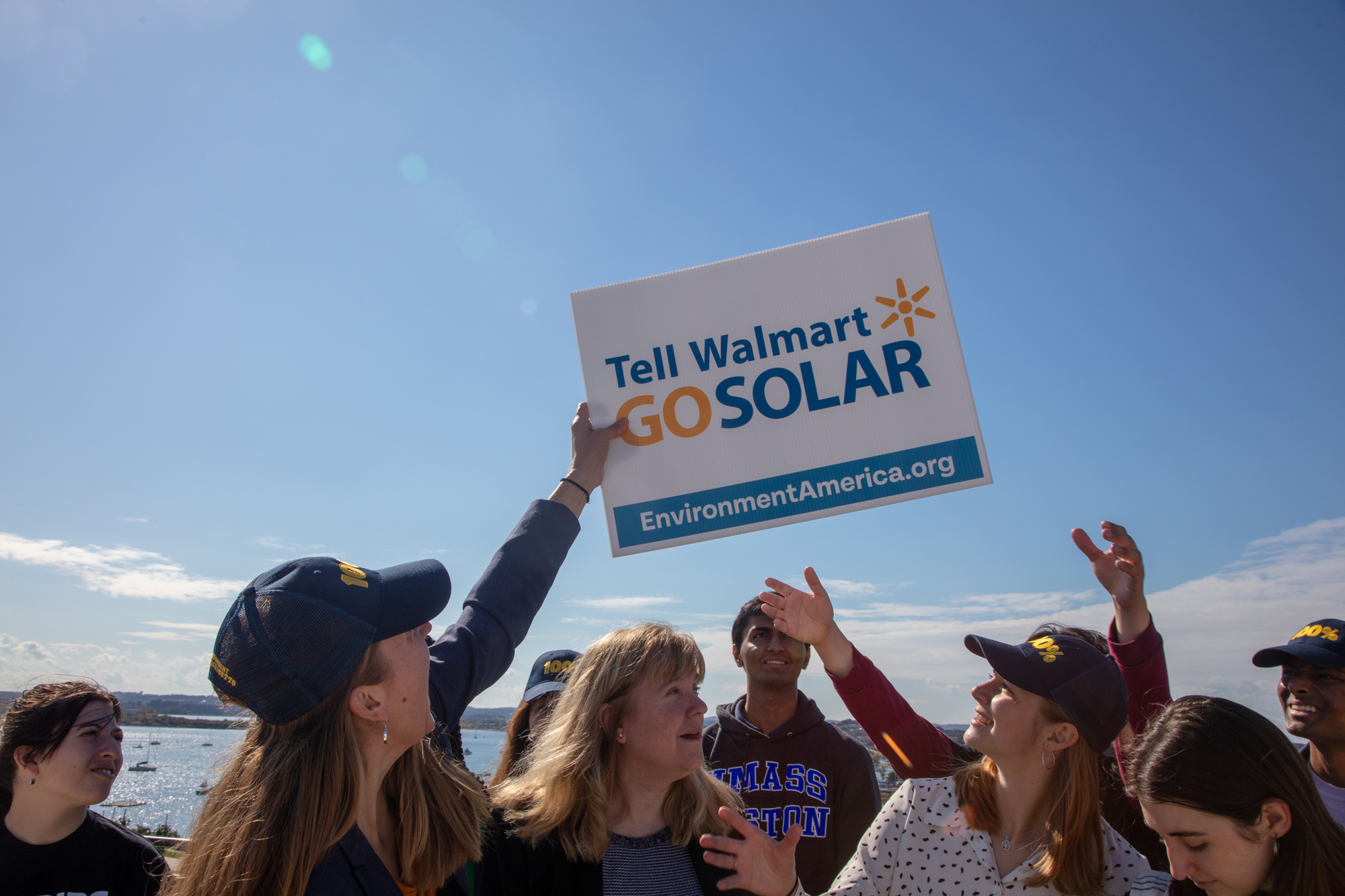
Which 10 American retailers can lead the way on rooftop solar?
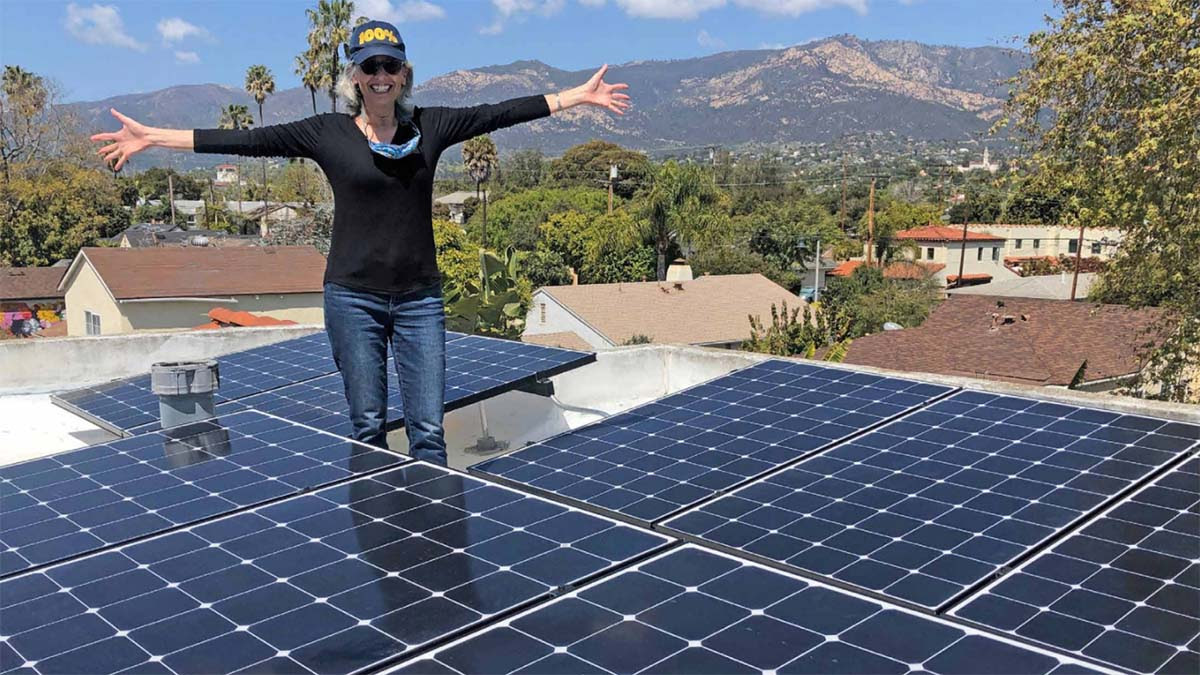
More rooftop solar, less red tape
